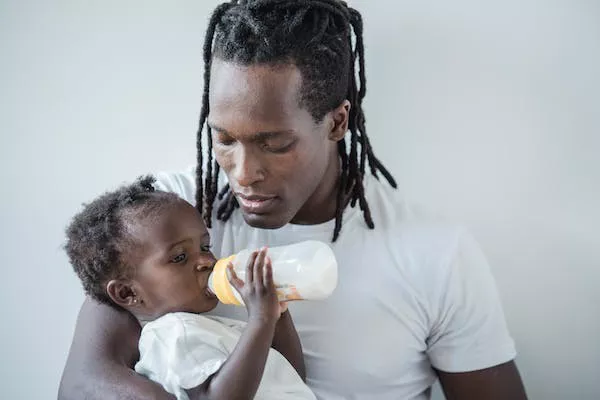Welcoming a newborn into your family is a joyous occasion, accompanied by a range of preparations to ensure their well-being. For parents who plan to bottle-feed their baby, one common question arises: How many bottles should I buy? Determining the right quantity of bottles is essential to meet your baby’s feeding needs comfortably. In this comprehensive guide, we will explore various factors that influence the number of bottles required, providing you with practical insights and tips to make an informed decision.
Understanding Feeding Patterns
To determine the appropriate number of bottles for your newborn, it’s important to understand their feeding patterns. Newborns typically feed every 2-3 hours, with each feeding session lasting around 20-30 minutes. At the beginning, their feeding volume may range from 2-3 ounces per feeding, gradually increasing as they grow. By considering these patterns, you can estimate the number of bottles needed to ensure a consistent supply throughout the day.
Choosing the Right Bottle Sizes
Selecting the appropriate bottle size is crucial for your baby’s comfort and convenience. Newborns usually start with smaller bottle sizes, such as 4-ounce or 5-ounce bottles, as they have smaller appetites. As your baby grows and their feeding volume increases, transitioning to larger bottle sizes, such as 8-ounce or 9-ounce bottles, may be necessary. It’s advisable to have a mix of bottle sizes on hand to cater to your baby’s changing needs.
Sterilization and Cleaning Considerations
Maintaining proper hygiene for your baby’s bottles is essential. Sterilizing bottles before their first use and periodically thereafter helps eliminate bacteria and ensure a clean feeding experience. Additionally, bottles need to be washed and sterilized after each use. Considering the time required for sterilization and cleaning, it’s practical to have a sufficient number of bottles. This allows for a rotation system, ensuring you always have a clean bottle available while others are being cleaned or sterilized.
Accounting for Travel and Convenience
When deciding how many bottles to buy, it’s important to consider travel and convenience factors. If you plan to travel frequently or will be away from home for extended periods, having a few extra bottles can be advantageous. This allows you to pre-fill bottles or have a reserve supply readily available, ensuring your baby’s feeding needs are met while on the go. Moreover, having spare bottles within easy reach throughout your home can provide convenience during nighttime feedings or unexpected situations.
Exploring Bottle Types and Compatibility
The market offers a wide array of bottle types and brands. Some babies may have specific preferences or feeding challenges that require specialized bottles, such as anti-colic or slow-flow bottles. Initially, it’s recommended to have a variety of bottle types to determine which ones work best for your baby. Once you find the most suitable bottle type, you can invest in additional bottles of that kind to ensure consistency and compatibility with your baby’s feeding routine.
Building an Effective Bottle Collection
Taking into account the factors discussed above, it is generally recommended to have a minimum of 8-10 bottles for a newborn. This quantity allows for a consistent rotation of clean bottles, accommodates the frequency of feeding sessions, and accounts for growth patterns. It also provides flexibility for sterilization and cleaning, travel needs, and bottle type preferences. By building a well-stocked bottle collection, you can ensure that you are always prepared to meet your baby’s feeding requirements while maintaining optimal hygiene.
Conclusion
Determining the number of bottles to buy for your newborn is an important decision to ensure their feeding comfort and convenience. By considering factors such as feeding patterns, bottle sizes, sterilization and cleaning needs, travel requirements, and bottle type compatibility, you can build a suitable bottle collection. Remember that every baby is unique, so observing their feeding habits and preferences will help you tailor the number of bottles to their specific needs. Ultimately, a well-prepared bottle collection ensures a smooth and satisfying feeding journey for both you and your newborn.


